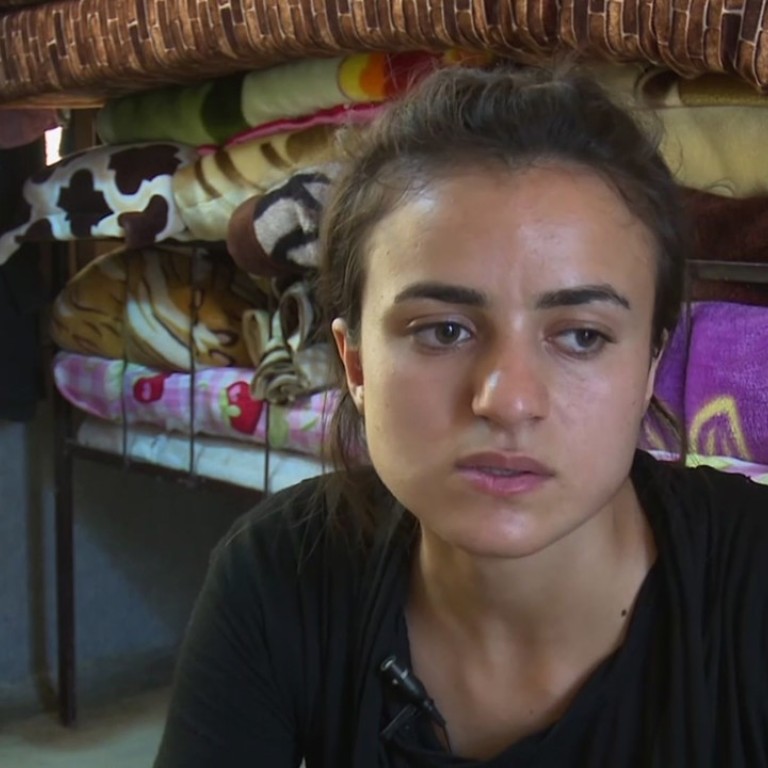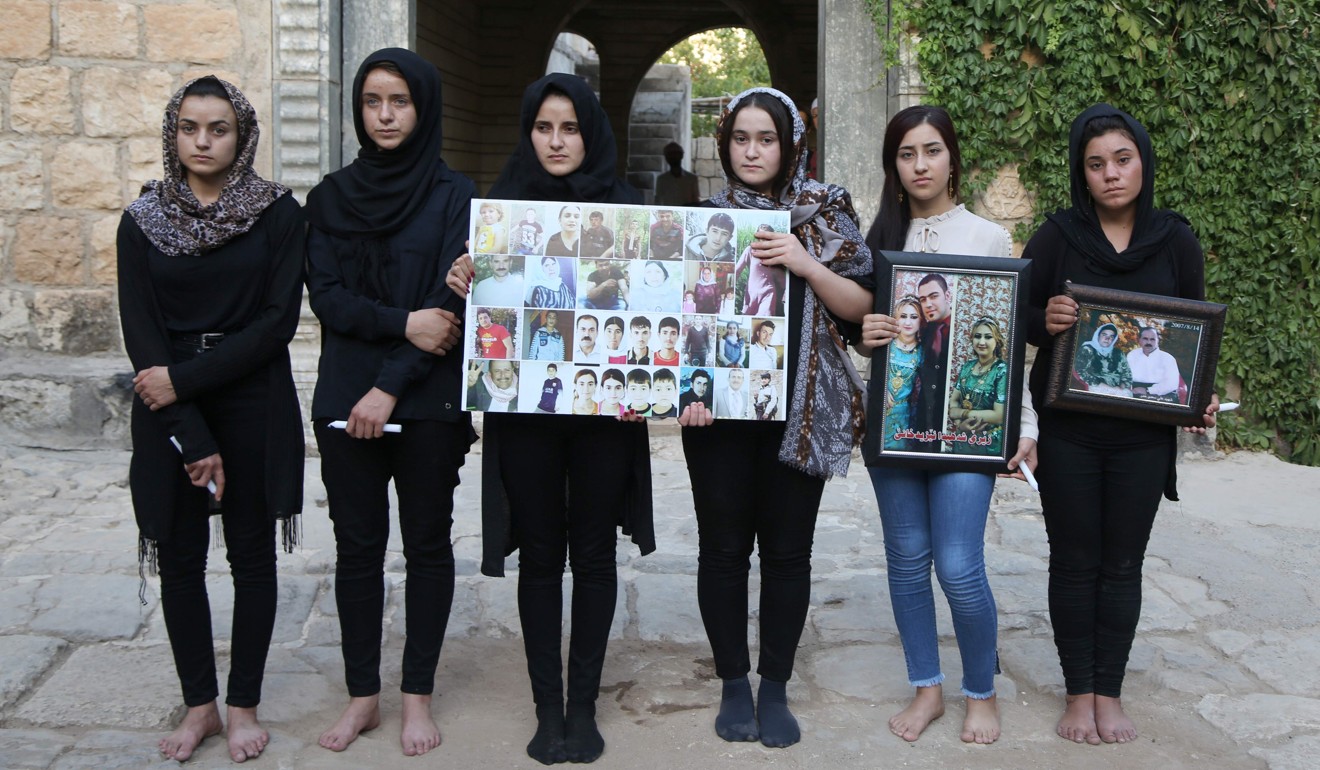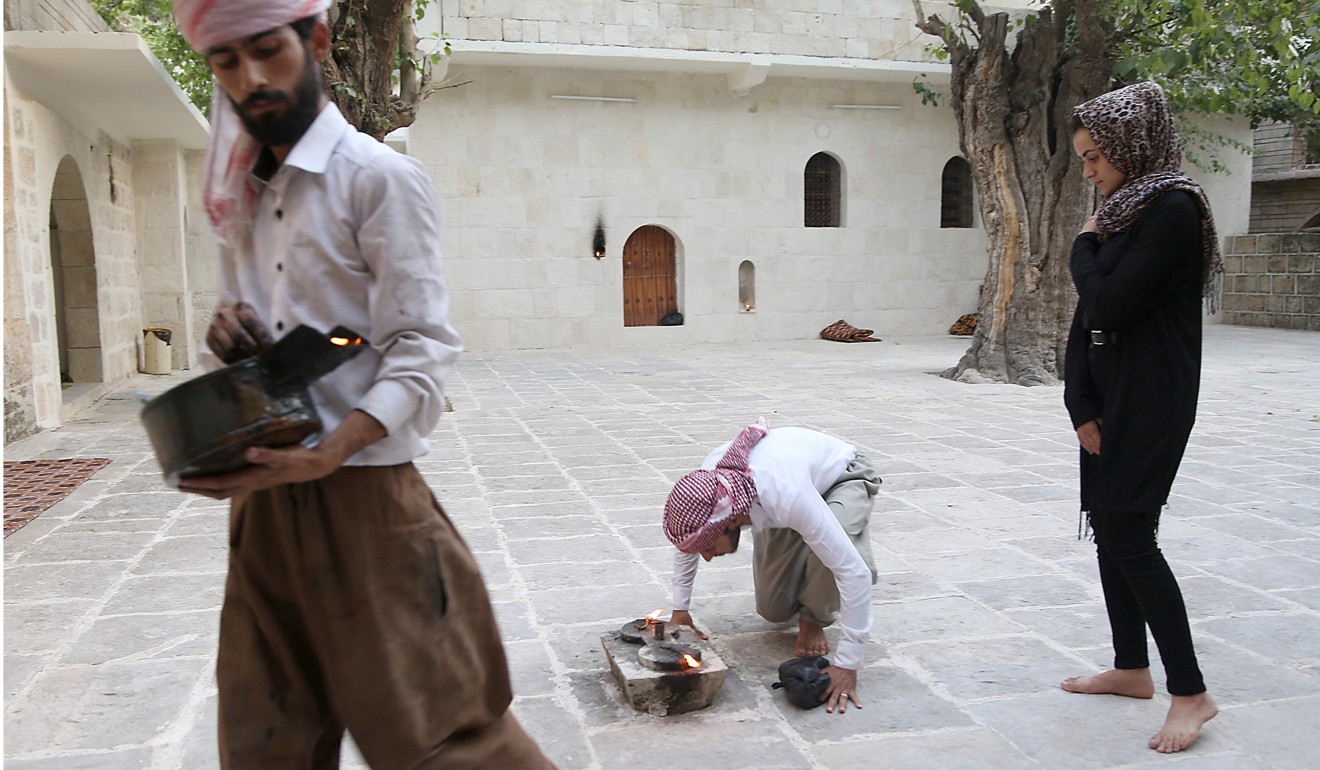
Berlin probing Yazidi woman’s claim about seeing former Islamic State captor in German supermarket
Nineteen-year-old says she bumped into her extremist tormentor twice before fleeing back to Iraq, where she feels safer
German prosecutors said on Saturday they are taking seriously a Yazidi refugee’s claim that she ran into her former Islamic State captor twice in Germany, but say they need more information to identify him.
The case of 19-year-old Ashwaq Haji Hami made headlines after she was quoted telling the Iraqi-Kurdish news portal basnews that she returned to her homeland of Iraq for fear that her alleged tormentor could harm her in Germany. Several reports in foreign media suggested German authorities were unwilling to act on the woman’s claims.

“The young woman was interviewed but the information [she provided] wasn’t precise enough,” said Frauke Koehler, a spokeswoman for federal prosecutors. When authorities tried to follow up, the woman had already left Germany, Koehler said.
The woman is now at a camp for refugees near Shekhan in the Kurdistan region of Iraq.
Hami said she was captured by Islamic State in August 2014, and enslaved and abused by an IS member called Abu Humam, whose real name she said was Mohammed Rashid. After managing to escape from IS, she claims she saw him in Germany in 2016 and again in February this year in the southwestern German town of Schwäbisch Gmünd.

“I recognised his face very clearly and whenever I see him I can recognise him … because of the beatings he gave us,” Hami said. “We saw him 24 hours a day. So anytime or anywhere I see him, I would be able to identify him.”
Hami said she reported the incidents to German police, but fearing for her safety she moved back to Iraq in June.
“I am not ready to sacrifice my honour in Germany,” she said. “If I was kidnapped or killed in Germany, who would find out who did that to me?”

Koehler rejected suggestions that German authorities were not interested in the case.
“If we’d seen an opportunity to arrest someone, we would immediately have done so,” she said, noting that German federal prosecutors opened a special investigation several years ago into alleged war crimes committed by Islamic State militants with the aim of bringing perpetrators to justice.
One of the investigation’s elements is the claim IS militants killed thousands of Yazidis in 2014. Many more were said to have been taken into captivity and often kept as sex slaves.
About 3,000 Yazidis are still missing, most thought to have been killed in the war that rolled back IS control in Syria and Iraq in the last three years.

Jan Ilhan Kizilhan, a German doctor who helped bring hundreds of Yazidi women to Germany in 2015, told public broadcaster ARD on Friday that seeing people who look like their tormentors can trigger traumatic memories.
Koehler said while the case was difficult, “if we get any further information to firm this up, we will pursue this”.
To do so, Hami would need to return to Germany, Koehler said.
“Our powers end at the German border,” she added.

